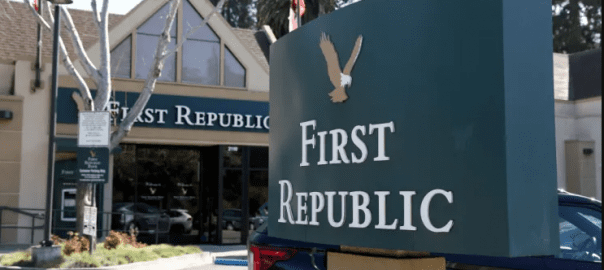New York, May 1, 2023 – The U.S. banking crisis that began in March 2023 was the result of a number of factors, including:
The collapse of Silicon Valley Bank: Silicon Valley Bank was a large regional bank that specialized in lending to technology companies. The bank’s collapse in March 2023 was a major blow to the banking industry and shook confidence in the financial system.
The war in Ukraine: The war in Ukraine has had a significant impact on the global economy, including the U.S. banking sector. The war has caused energy prices to rise, which has led to higher inflation and a slowdown in economic growth.
The Federal Reserve’s interest rate hikes: The Federal Reserve has raised interest rates in an effort to combat inflation. However, higher interest rates make it more expensive for businesses to borrow money, which can lead to a slowdown in lending and economic growth.
The combination of these factors has led to a decline in lending and a slowdown in economic growth. This has put pressure on banks, which are facing higher loan losses and lower profits. As a result, some banks have been forced to raise capital or sell assets in order to shore up their balance sheets.
The seizure of First Republic Bank and its sale to JPMorgan Chase is the latest sign of the challenges facing the U.S. banking sector. It is unclear how long the crisis will last, but it is clear that the banking industry is facing a number of headwinds.
The seizure of First Republic Bank and its sale to JPMorgan Chase will be done through a process called a conservatorship. In a conservatorship, the FDIC (Federal Deposit Insurance Corporation) takes over a failing bank and appoints a conservator to manage the bank’s assets. The conservatorship is designed to protect the bank’s depositors and creditors and to ensure that the bank’s operations are orderly and efficient.
The FDIC’s role in the conservatorship is to protect the bank’s depositors and creditors. The FDIC will ensure that all of the bank’s deposits are insured up to the FDIC’s limit of $250,000. The FDIC will also work to ensure that the bank’s creditors are paid in full, to the extent possible.
For investors and depositors, the seizure of First Republic Bank and its sale to JPMorgan Chase will have a number of implications. First, investors will lose any money that they have invested in the bank that is above the FDIC’s insurance limit. Second, depositors will not be able to access their money until the sale of the bank is complete. Third, depositors may see a change in the terms of their accounts, such as a higher interest rate or a new fee structure
J.P. Morgan Chase is helping First Republic Bank because it is in the best interests of both banks.
For First Republic, the sale to J.P. Morgan Chase provides much-needed capital and stability. First Republic had been struggling financially in recent months, due to a number of factors including the rise in interest rates and the ongoing trade war between the United States and China. The sale to J.P. Morgan Chase will allow First Republic to continue operating as a going concern and to serve its customers.
For J.P. Morgan Chase, the acquisition of First Republic is a strategic move that will allow it to expand its presence in the high-net-worth market. First Republic is known for its strong customer service and its focus on serving high-net-worth individuals and families. The acquisition will give J.P. Morgan Chase a foothold in this growing market and will allow it to compete more effectively with other large banks such as Goldman Sachs and Morgan Stanley.
In addition, the acquisition of First Republic Bank could help JPMorgan Chase to diversify its business and reduce its risk. First Republic Bank is a relatively small bank, so its failure would not have a significant impact on JPMorgan Chase’s overall financial health.
However, it is important to note that the acquisition of First Republic Bank is not without risks. First Republic Bank is facing some challenges, including rising interest rates and increased competition. JPMorgan Chase will need to be careful to manage these risks in order to make the acquisition a success.
The sale of First Republic Bank to J.P. Morgan Chase is a positive development for both banks. It provides First Republic with the capital and stability it needs to continue operating, and it gives J.P. Morgan Chase a foothold in the growing high-net-worth market.
Read the full press release here

